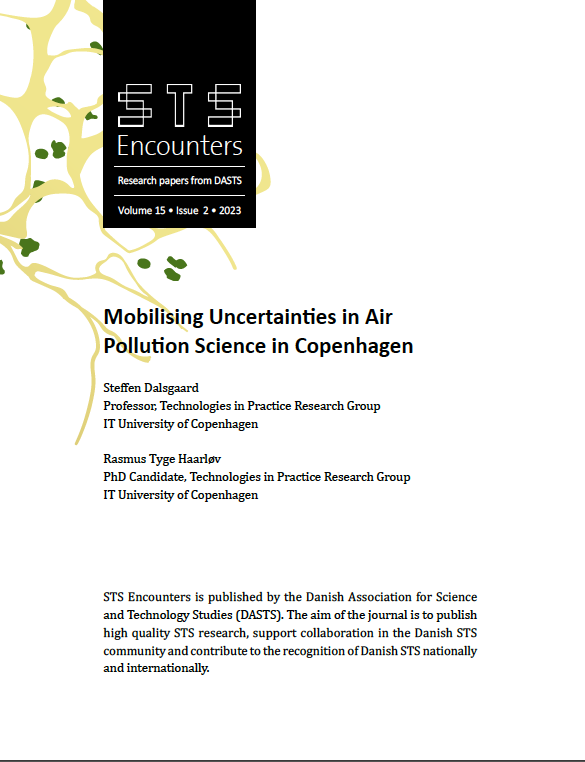Mobilising Uncertainties in Air Pollution Science in Copenhagen
DOI:
https://doi.org/10.7146/stse.v15i2.139809Keywords:
Uncertainty, air pollution, science, technology, humilityAbstract
In this short article we discuss three different ways of measuring air pollution in Copenhagen, Denmark, in relation to the potential for using technoscientific tools and expertise to influence public policymaking meant to curb pollution. Based upon a mix of data ranging from scientific literature and public reports to interviews with scientific and lay stakeholders, we outline how the introduction of Google’s Project Air View, in combination with an increase in citizen engagement in air pollution, has come to play a key role in the re-invigoration of local concerns over air pollution. Previously, expertise on the city’s air pollution has been the domain of established scientists operating fixed monitoring stations, but this recently stable relation between science and policy is currently being replaced by an assemblage of contrasting views on air pollutants. Our analysis suggests that the measurements of emerging pollutants by Google’s project and by citizens themselves have impelled policymakers in Copenhagen to accept, to engage with and act upon new scientific uncertainties. We see this as giving rise to a degree of humility where emerging modes of knowing air pollution are treated as complementary with established ones.

Downloads
Published
How to Cite
Issue
Section
License
Copyright (c) 2023 Steffen Dalsgaard, Rasmus Tyge Haarløv

This work is licensed under a Creative Commons Attribution-NonCommercial-ShareAlike 4.0 International License.
Starting with volume 15, articles published in STS Encounters are licensed under Attribution-NonCommercial-ShareAlike 4.0 International (CC BY-NC-SA 4.0). The editorial board may accept other Creative Commons licenses for individual articles, if required by funding bodies e.g. the European Research Council. Previous articles are not licensed under Creative Commons. In these volumes, all rights are reserved to the authors of the articles respectively.




